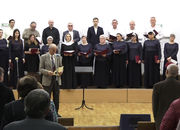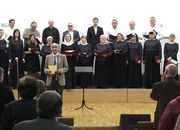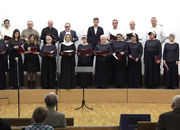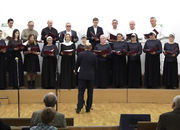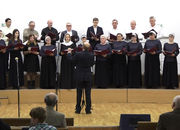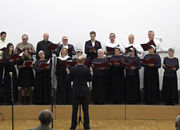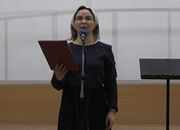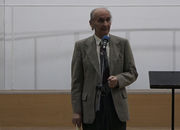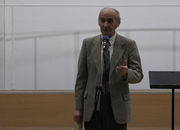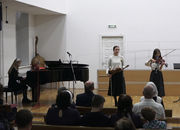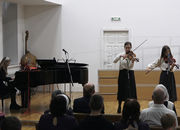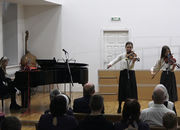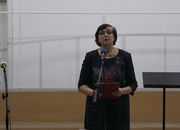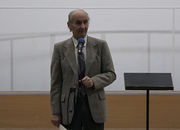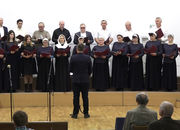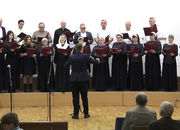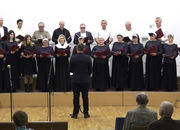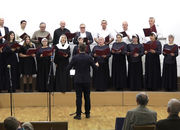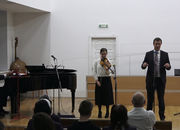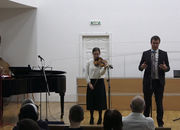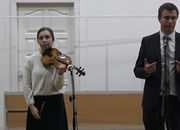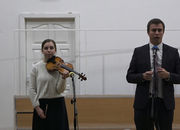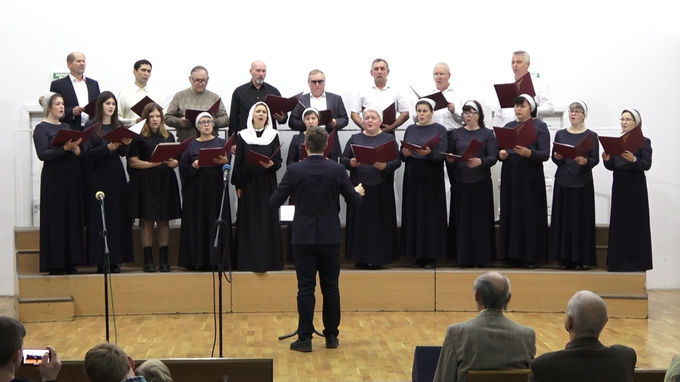
The Candle of Remembrance in Tambov
The Baptist movement in Russia is unique in its experience, content and direction. One of its uniquenesses lie in its close connection with the path of the cross, the path of suffering. In Tsarist Russia Baptists were labeled as revolutionaries, while in Soviet Russia Baptists were labeled as counter-revolutionaries, and therefore treated harshly.
The Chief Prosecutor of the Holy Synod, Konstantin Pobedonostsev (1827-1907), believed that there should be no Russian Baptists at all, set the goal: “to break the back of Russian Baptism, Stundism, Redstockism, and Pashkovism.” On his initiative, St. Petersburg aristocratic preachers Vasily Pashkov and Count Modest Korf were expelled from Russia, and ordinary believers, shackled, marched along the roads of Transcaucasia, Siberia, the Northern Territory, risking death from hunger and unbearable living conditions. In Soviet times, Baptists, along with other Christians, suffered from the Stalinist, Khrushchev and Andropov persecutions. The last sufferer for the faith, the Odessa presbyter Nikolai Boyko, left the Soviet dungeons only in 1989.
Of all this series of sophisticated persecutions on an unprecedented scale and cruelty, the mass repressions of the 1930’s stand out in particular. The Bolshevik Party announced a five-year plan of godlessness. At the head of the atheistic campaign was the union of militant atheists, an organization created back in 1923. The then ideologue of repressions, Alexander Klibanov, proposed "turning the entire union of militant atheists into a single assault brigade."
In the Tambov Territory, "godless stormtroopers" launched a campaign for the creation of "godless collective farms." And the villages, where there were many believers, were proposed to be "taken for the enhanced development of godlessness in them." Places of peaceful meetings of believers were called "hornets' nests" in the press. Dozens of believers, honest workers, the best citizens of the country, under the roar of furious atheistic propaganda, disappeared almost without a trace in the insatiable belly of the Gulag camps.
The entire program of the Evening was dedicated to those who were slandered, tortured, and endured great suffering. The culmination of the musical part of the program is the famous chant “The sea of life is raging terribly” to the words of the poet Ivan Kulzhinsky (1803-1884) and the music of the Baptist composer Yakov Vyazovsky performed by the choir of the central church under the direction of Alexander Atikov, a graduate of the Institute of Sacred Music. This chant was the hallmark of Russian Baptists at the World Baptist Congress in Stockholm in 1923. The words of this song were listened to and quietly sung along by the great writer of the Russian land, Alexander Solzhenitsyn, when it sounded from the lips of his fellow Baptists.
Those present at the evening could hear verses from the poetic heritage of one of the brightest representatives of the Baptist movement, Georgy Vins (1928-1998), who went through the epic of prisons and camps for preaching the Gospel.
It was gratifying to see among the program participants the grandchildren of repressed Christians who follow Christ and serve Him, following the example of their grandparents.
Anatoly Alipichev, Senior Presbyter of the Union of ECB Churches of the Tambov Region, spoke about the importance of preserving spiritual and historical continuity in his sermon, recalling the young collaborator of the Apostle Paul, Timothy, who inherited the faith of his grandmother and mother.
The especially solemn and reverent moment of the Evening was not accidental, when a young man from a family of hereditary believers, walking through the whole hall, carried a large lit candle in his hands to the singing of the choir. The candle was placed in a conspicuous place next to an unusual photo. In an old group photo, one of the faces was erased. This is one of the symbols of that terrible inhuman era, when those who were officially declared enemies of the people were tried to be erased from the memory of the people.
The memory of Christian martyrs is sacred. Forgetting the martyrs, forgetting the innocent sufferers in the hustle and bustle of everyday life and religious fuss, are we not at risk of forgetting the Great Sufferer Who Endured the Crucifixion for our salvation – the Lord Jesus Christ?
Vladimir Popov


